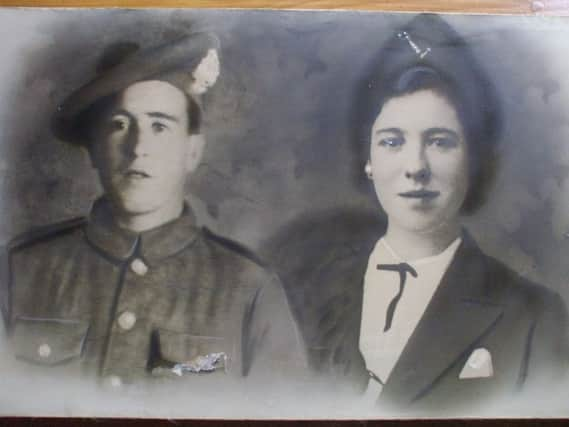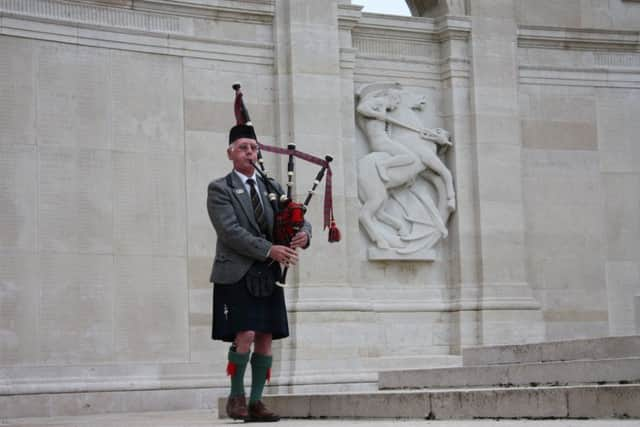Falkirk veteran pays tribute to soldier grandad he never knew


As a youngster he often wondered why he didn’t have a grandad, then the truth became clear when at home he found a picture of a man in uniform.
Advertisement
Hide AdAdvertisement
Hide AdThis was William Allen, his grandfather, who died in action in France just days before the end of the war. He was 19.


Tragically his grandmother didn’t receive official confirmation of his death until December 1919, more than a year after the end of hostilities.
Because of the war Charles’ mum Margaret, who passed away in 2003, had never had the chance to meet her own father - so for both of them William was an enigma, a close family member whose life had been denied to them.
Charles later joined his granddad’s regiment, the Argylls - it had become a family tradition, and several of his relatives, including two brothers, were also Argylls men.
Advertisement
Hide AdAdvertisement
Hide AdHe is a veteran of the 1960s Borneo campaign, and knew the Argylls’ famous commander, Lt Colonel Colin Mitchell – “a perfect gentleman” – very well.
That regimental connection lent a special dimension to his determination to find out as much as he could about William, and led to an unforgettable trip to Arras with his mum - and he has since returned for further commemorations.
However, it wasn’t a grave he visited, but a memorial at the British war cemetery at Vis-en-Artois – because William, like so many others, was never identified for burial.
He said: “It was very traumatic and meaningful for my mother to find the father she never knew, commemorated with more Argylls.”
Advertisement
Hide AdAdvertisement
Hide AdCharles, who was a piper with the regiment, played a lament at the site – and at other memorials, including the one for the German war dead.
As a professional soldier in some ways born to the military life he had the terrible privilege of understanding more than most the maneouvres which led to the action in which William was killed.
Charles took the trouble to get hold of the official war record of military operations in the sector where he died, and was able to piece together an idea of what had happened.
The Allies were winning the war, and to all intents and purposes the Germans were finished – and knew it.
Advertisement
Hide AdAdvertisement
Hide AdBut still young men like William perished in their thousands. He died on October 24, 1918, within touching distance of the ceasefire which would finally put an end to the slaughter.
Charles’ grandmother married twice again – her second husband was a miner, John Beekman, and he was to die in the terrible Redding Pit Disaster of 1923.
Now, in his eighth decade, the former Argylls stalwart will be playing the pipes once again, at a private commemoration of his grandfather at Camelon Cemetery.
The man separated from what was to become a large extended family – and who, but for a line or two in a Falkirk Herald death notice, may ultimately have been all but forgotten – will be remembered with honour in the place which meant most to him.